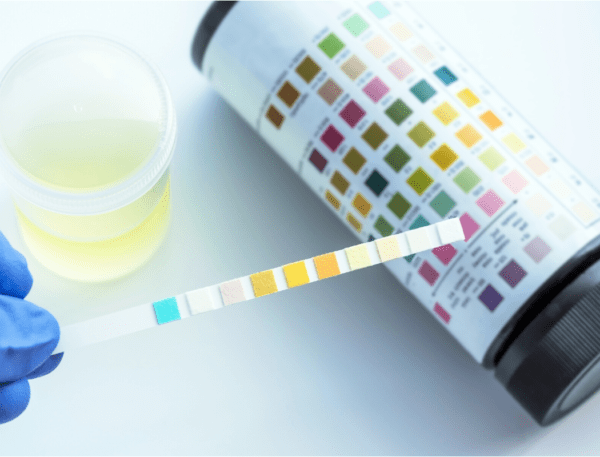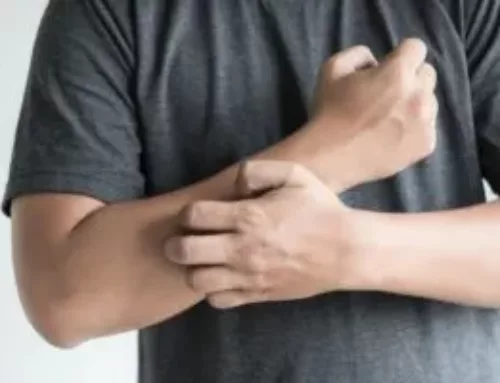SHAPE is unique among wellness programs. We are focused on helping you decrease inflammation, enhance immune function, detox and cleanse, and lose weight (if desired) as part of your journey to ReClaiming your health.
Because you have your own unique health profile, the SHAPE Program is practitioner-supervised so it can be customized to your unique needs. Your SHAPE practitioner is carefully trained on how to guide you through the program using a variety of diagnostic techniques and urine testing, or urinalysis.
Having regular urinalyses during your SHAPE Program journey is what ensures that you achieve and maintain long-term results. Urinalysis is truly what sets SHAPE apart from other programs. It is one of the keys to the success of the SHAPE Program.
If weight loss is one of your goals with the SHAPE Program, the urinalysis is especially critical to your success. Here’s why:
Most diet programs fail because the brain (specifically the hypothalamus) receives a message that the body is starving. Yes, you’ll lose weight, but as soon as you reintroduce excess calories, your body will regain the weight you lost, and it will raise its “set point” to protect against further starvation.
Your set point is the weight range in which your particular body is programmed to function at its best. Your body and brain work together to set the amount of body fat they believe is necessary to sustain and maintain your overall health through energy usage, metabolism and hunger. Based on the metabolic set point theory of homeostasis, the body tends to maintain a particular weight range. However, your body’s set point can be reprogrammed through embracing sound dietary habits.
If you do not have weight to lose, but are doing the SHAPE Program to reduce inflammation, detox and cleanse and improve your immune system, the urinalysis is still beneficial. Starvation signals don’t just affect weight. Starvation can affect the brain and body in a variety of ways, causing a potential cascade of negative symptoms.
Through urinalysis, your SHAPE practitioner can see how your body is responding to the SHAPE Program and can customize your dietary requirements to meet your specific metabolic needs. For example, you may be asked to eat more protein and/or fruit, to increase your water intake or to consider adding supplements to your SHAPE regimen.
What Does Urinalysis Show?
SHAPE practitioners use urinalysis strips to measure 10 different metabolic markers. The following is a list of those markers and what they indicate in your body.
|
What it is |
What it may indicate |
|
|
Leukocytes |
White blood cell activity |
Infection |
|
Nitrites |
A nitrogen-based compound that forms in the presence of bacteria |
Urinary tract infection |
|
Urobilinogen |
A compound formed in the intestines by the degradation of bilirubin |
Gallbladder weakness |
|
Protein |
A combination of amino acids from food or body tissue |
Digestive weakness, dehydration, pH imbalance, over-exertion, lack of enzyme activity, HCl deficiency, diabetic tendencies |
|
pH |
Acid and alkaline levels |
|
|
Blood |
A body fluid that transports nutrients, oxygen and waste |
Vaginal dryness, prostate weakness, kidney infection/stones |
|
Specific Gravity |
A measure of how ‘thick’ the urine is compared to water |
High: dehydration, blood sugar, and adrenal imbalances Low: hypothermia, cellular dehydration, diuretic usage, excess water intake |
|
Ketones |
An indication that the body is burning fat instead of sugar |
Trace to moderated are acceptable, large indicates starvation (Please note that not everyone goes into ketosis while on the SHAPE Program. Ketosis is not a requirement; you can still experience tremendous success without it.) |
|
Bilirubin |
A compound that circulates in the blood attached to protein |
Liver or gallbladder weakness |
|
Glucose |
Blood sugar |
Diabetic tendencies |
How Often Should I Have a Urinalysis?
 Regular urinalysis is required for Phase I: FasTrac Cleanse (we recommend them for the Basic Cleanse, but it is not required). You will have a baseline urinalysis before beginning the program. The frequency with which you should be monitored will be determined by your SHAPE practitioner, who will consider:
Regular urinalysis is required for Phase I: FasTrac Cleanse (we recommend them for the Basic Cleanse, but it is not required). You will have a baseline urinalysis before beginning the program. The frequency with which you should be monitored will be determined by your SHAPE practitioner, who will consider:
- Your overall health history — If you have a chronic illness like diabetes, you will need to be monitored more carefully.
- Your use of prescription medication — As your health improves, your medication needs may change, and you can talk with your prescribing physician about decreasing or eliminating some medications.
The SHAPE Program is not one-size-fits-all. If 10 people start together, we know that within a month or two all of them will be at different places in their journey. Our SHAPE practitioners are trained to monitor and respond to each person’s unique needs. That’s why regular urinalyses are so important. You’ll have a greater chance at long-term success if you work closely with your SHAPE practitioner and follow the program through Phase III and beyond. Trust the program, trust the process and trust your practitioner.






